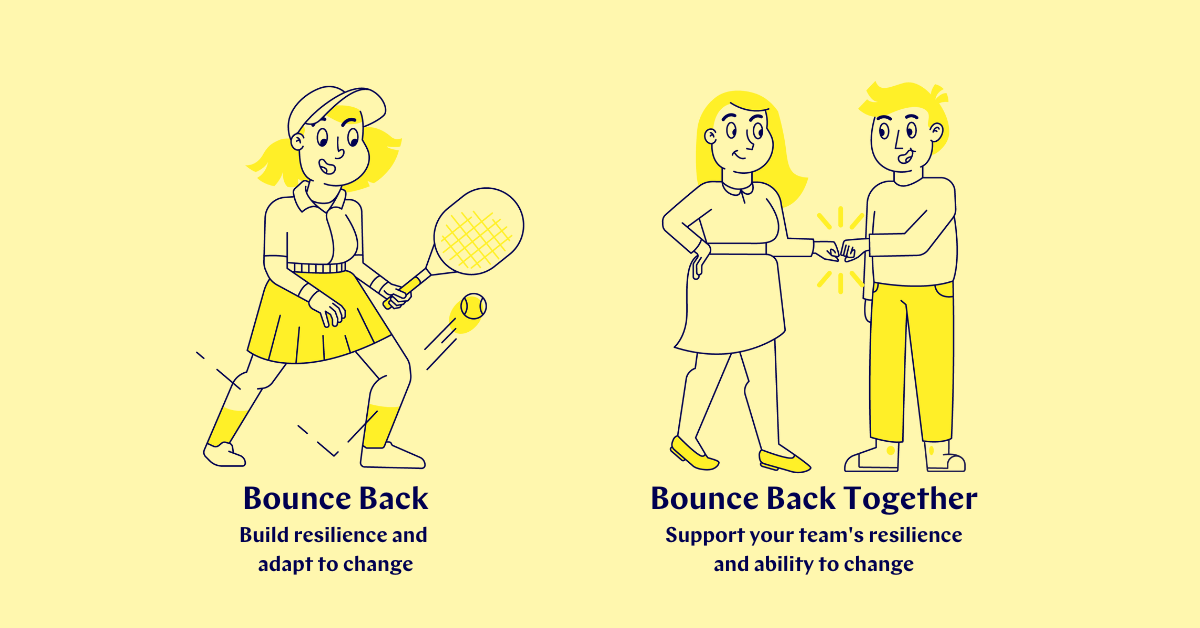We all face different setbacks throughout our lives. We face both small everyday adversities and major life changes and crises. With the ongoing challenges in the world today, resilience has become more essential than ever. From the lasting impacts of COVID-19 to global conflicts, economic uncertainty, and climate crises, we have all been required to adapt, endure, and navigate an ever-changing landscape.Resilience is thought to have a significant impact on how healthy and well-being we come through these adversities. Resilience, therefore, refers to the ability to adapt to and recover from adversity.
Coping with adversity and life changes can be more successful in some areas of life than in others, for example, doing your work can be successful, but maintaining social relationships is not as successful as before. This is a good thing to remember when it comes to our loved ones: coping can be a lot of a challenge even if a person is able to go to work quite well.
Resilience does not mean suppressing or denying emotions – adversity is felt by all of us and that is how it should be. In fact, the repression of emotions is harmful to us. Resilience is also not a compulsive positivity or that one would think adversity is just good. Of course, this is not the case, but set-backs feel awful and cause nasty things, but resilience helps us to withstand shocks better and to maintain our ability to act even in the face of challenges and to recover from difficult situations. Resilience does not mean that one should survive alone or that one should endure anything. So it’s not good to just bite the tooth and endure endlessly, and none of us can do that forever. People’s endurance and coping have their limits, and this limit should not be crossed.
How to strengthen resilience?
The good news is that resilience is not a fixed unchanged part of humans, but a skill that can be developed and practiced. The basis for resilience are genetic and biological features, some of us are for example more sensitive to see certain situations as threats compared to others. Additionally childhood experiences, other prior experiences and previously experienced adversities affect resilience. However more important than this is that we can strengthen resilience, and it is never too late for that. Due to the broadness of the phenomenon there are several ways to strengthen resilience. Next I will present eight different ways to strengthen your resilience.
1. Wellness
Wellness creates the basis for endurance and provides strength to face adversity. The basis for wellness – food, sleep and rest, exercise, social relations and doing things you enjoy – are therefore also the building blocks of resilience. So remember to take care of yourself and your wellbeing and to support your recovery.
2. Self-awareness
To strengthen resilience it is fundamental to increase self-awareness. We cope better with adversity when we know what works for us, how we react and how to help ourselves to cope. What interpretations do I make of my surroundings? What do I think and feel of adversities? How do I react to my own feelings? What means have helped me endure and recover from past adversity? What things have I done in the past that have been harmful to the situation? What kind of resources do I have? With self-awareness, we can also strengthen our stress management tools and recovery.
3. Flexible thinking
Adapting thinking and learning to change thought patterns and perspectives reinforce resilience. We can practice seeing alternatives in different situations, taking the other person’s perspective in situations, and looking at adversity and threats also from the perspective of creating opportunities and meanings. Through these means, we also increase our experience of capability and alternative ways of working.
4. Positive attitude towards the future and optimism
Overall positive attitudes and optimism strengthen our adjustment and recovery from adversity and help us cope with also difficult feelings. Again, these are skills that can be practiced. What good happened today? What good things are coming? What could be something refreshing that brings light and endurance? How we believe we will survive is also important for real resilience and recovery.
5. Problem solving tools
Effective problem-solving tools help in difficult situations, because then problem-solving does not consume as much energy and is not as burdensome as in the absence of problem-solving tools.
6. Distinguishing whether the situation can be influenced or not
This is also worth practicing! We can practice this skill by looking at everyday things. Can I influence what someone really thinks of me? Can I influence how I behave towards him? Can I influence what the weather is like? When we can differentiate between being able to influence a situation or not, it is easier for us to decide whether to use our problem-solving tools or focus on acceptance and coping in the situation.
7. Dealing with our own thoughts and feelings and acceptance
How we deal with and react to our thoughts and feelings is of great importance. Often we do not notice the difference between our thoughts and truths. We tend to believe in our own thoughts, and what we think easily becomes our reality. When we see them as truths (like the idea of “I will never survive this”), negative thoughts really take up power and can trigger a storm of negative emotions. As we learn to distance ourselves from our thoughts and differentiate them, even in difficult moments we can identify thoughts as just thoughts instead of truths.
Often we deal with negative thoughts and feelings with new negative emotions and thoughts. For example, a feeling of anxiety often arouses more anxiety in us, and we make every effort to get rid of anxiety through the inner effort of the mind – in vain. Instead, anxiety often only increases in such a situation. Or am I trying to avoid and suppress my thoughts and feelings? Instead, one should develop an accepting attitude towards one’s own thoughts and feelings. We can develop an accepting attitude, for example, through conscious presence exercises.
An accepting attitude towards external issues and adversity can also be developed. If we can’t influence the situation, we should accept the situation – just because of our own coping. Mental controversy and oppression consumes us and does not eliminate adversity.
8. Stress management and emotional intelligence
Lastly, I highlight stress management and emotional skills. Developing and supporting these will help us in the face of adversity. This is a wide spectrum of different skills such as emotional recognition, acceptance and relaxation.
In conclusion
There are a lot of ways to strengthen resilience, but it’s not meant that all of these should be practiced and strengthened at once or right away. But if you strengthen in some area, it will already have effects. And in many ways! You can practice these techniques and skills independently or with a professional, for example with the new Auntie packages:
The Bounce Back package focuses on building resilience and finding new ways to adapt so that you can stay strong and maintain your peace of mind in the face of uncertainty.
The Bounce Back Together package focuses on how you, as a team lead, can strengthen your own and your team's resilience and capacity for change, and build a well-functioning team with a long-term perspective.
Writer:

Henna Ponkala
The author of the blog is Auntie professional Henna Ponkala, who is a trained psychologist.





